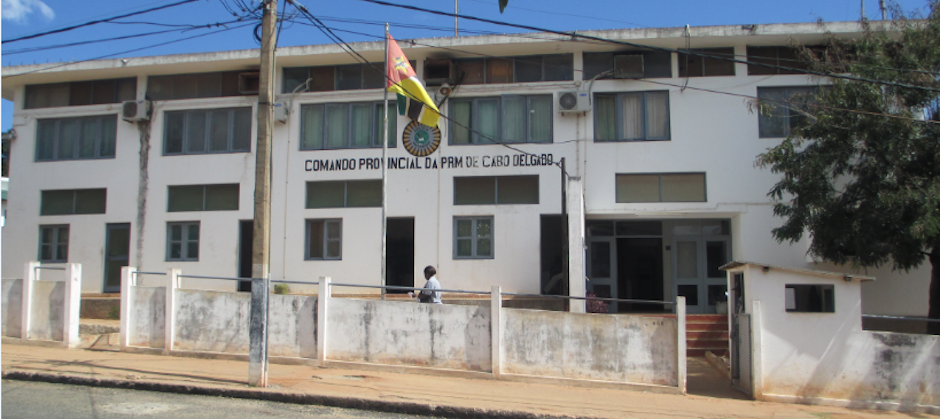Jihadism, a growing reality in Mozambique
Repeated Al-Shabaab attacks in the northern regions have provoked the government's military response. “When Islamists attack, they attack everyone, without discriminating”.
MAPUTO · 08 JUNE 2020 · 09:03 CET

For the President of Mozambique, Filipe Nyusi, a new armed conflict would harm “the favourable conditions for development”, not only in his country, but throughout Africa, he said.
However, the reality of a confrontation has become increasingly clear to the president and to the Mozambican population, especially in the northern region.
With the Civil War conflict still a very recent memory, which although officially ended in 1992 still exists below the surface with militias linked to the RENAMO movement in the provinces of Niassa and Nampula who have not renounced arms, the country is now facing a jihadist threat that has gained strength in recent years.
Since 2017, in the province of Cabo Delgado, a territory rich in gas and which is desired by large multinational companies, the jihadist movement of Al-Shabaab (independent of the group that operates under the same name in Somalia), has been growing larger.
This has been achieved through the fear generated by their continuous attacks in the area and by the support of foreign influences, especially radical ideologues of Islam from countries such as Algeria, Libya, Sudan as well as money from monarchies in the Middle East, according to the Maputo Institute for Social and Economic Studies.
“Mozambique has been the main emerging focus for jihadist activity in southern Africa for months. Right now, the Al-Shabaab group has the capacity to take cities of tens of thousands of inhabitants”, the International Observatory for Terrorism Studies points out.
More than a thousand dead and 150,000 displaced
The presence of jihadism in Cabo Delgado would have already claimed the lives of at least 1,100 people and would have caused the displacement of more than 150,000 “since the start of the insurgency”, according to the organization ACLED (Armed Conflict Location and Event Data Project).
The organization reported that between January 1 and April 25 of this year, there have been 101 violent incidents in the province, 300% more than at the same period of time last year, and 285 deaths.
One of the worst attacks by Al-Shabaab in Mozambique took place this April, in the town of Xitaxi, when jihadists murdered 52 young people “because they refused to join their ranks”, said the police spokesman, Orlando Mudumane.
After news of the attack spread internationally, the government reacted by announcing the death of 130 alleged members of the jihadist organization in Cabo Delgado.
“The situation in Cabo Delgado is under control. We identify where the enemy is, their bases, their camps and their movements”, Interior Minister Amad Miquidade, explained.
A conflict of interest
In addition to gas, the northern zone also is known for its coal reserves, its wood production and for being one of the highlights on the route of illegal ruby or ivory trafficking.
In contrast, the region also has the highest poverty rates in the country, as investments are concentrated in the south, where the capital is located.
“It is a predominantly Muslim area and the poorest in the country. It is a complicated area. At the heart of all of this, there is gas in this area and the rebels want to take control of this natural wealth”, the UEBE International Missions, which has a mission in the country collaborating with the Baptist Convention of Mozambique and with other social projects, said in social media..
The presence of jihadists in northern Mozambique has disturbed other countries in Southern Africa. According to the national newspaper Jornal Noticias, the governments of South Africa and Mozambique are negotiating a joint action in Cabo Delgado.
The President of Zimbabwe, Emmerson Mnangagwa, has also had to deny the presence of the Zimbabwean military deployed in the neighboring country, but has assured that “terrorism and radicalization are a worrying situation for peace, security and development in our region”.
International pressure has been noted in the Maputo government that, according to the news agency, Efe , in mid-May it has announced the death of 50 other alleged members of Al-Shabaab in Cabo Delgado.
“Until now there has been no persecution of Christians in Mozambique”
In a country traditionally with a Christian majority, and where the relationship with minorities has been cordial, one wonders to what extent the irruption of jihadism affects religious freedom.
“Despite not being on the World Watch List, our brothers in Mozambique are experiencing a real hell on earth because of Islamic oppression. Being Christians makes them targets of radical Islamic groups”, Open Doors pointed out .
Contrary to what some Christian organizations that monitor the persecution of Christians in the world have published, the pastor and president of the national Baptist Convention, Lourenço Anteiro, has assured Spanish news website Protestant Digital that “until now there has been no persecution of Christians in Mozambique”.
“I have been talking on the phone with pastors from the north who are in the area where troops of the Islamic group are destroying and killing the population, but our brothers are fine”, explains Anteiro.
“That war has nothing to do with the persecution of Christians. And no Christian has been killed for Islamic intent. When they attack, they attack everyone, without discriminating”, he underlined.
Published in: Evangelical Focus - world - Jihadism, a growing reality in Mozambique
